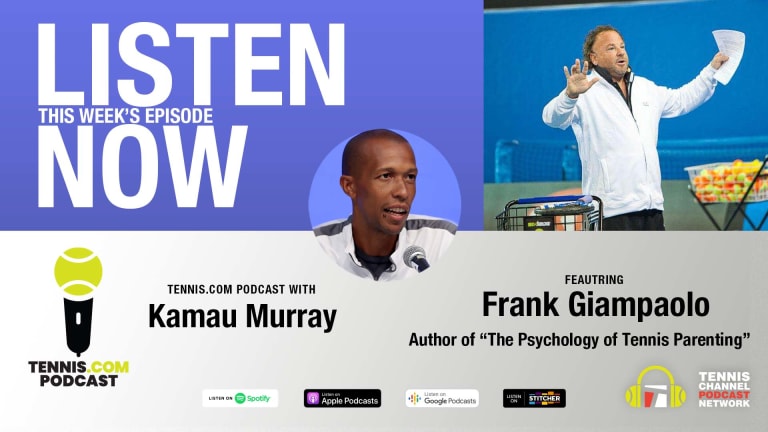Tennis.com Podcast
Tennis.com Podcast featuring Frank Giampaolo: Getting the most out of players and parents
By Mar 12, 2023Tennis.com Podcast
Tennis Channel Inside-In Podcast Featuring Eric Riley: Lessons From A Coach Who's Earned His Recognition
By Feb 10, 2024Tennis.com Podcast
How Chris Eubanks leveled up to the big time
By Dec 09, 2023Tennis.com Podcast
Tennis.com Podcast featuring Peter Lebedevs: Big time tennis is returning to Texas
By Dec 02, 2023Tennis.com Podcast
Tennis Channel Inside-In Featuring Patrick McEnroe: The Prominent Broadcaster Is Still Taking On Challenges In The Sport He Loves
By Nov 14, 2023Tennis.com Podcast
Tennis.com Podcast featuring Roger Smith: From the Bahamas with a dream
By Oct 17, 2023Tennis.com Podcast
Tennis.com Podcast featuring Frank Giampaolo: Mastering the mental side of tennis and achieving peak performance
By Oct 07, 2023Tennis.com Podcast
Tennis.com Podcast featuring Eric Diaz: a new-school coach of rising U.S. star Alex Michelsen
By Sep 30, 2023Tennis.com Podcast
Tennis.com Podcast featuring Michael Parks: A family's unconventional trip to the tennis mountaintop
By Sep 23, 2023Tennis.com Podcast
Tennis.com Podcast with Kamau Murray: Bradley Klahn’s still in the fight, and loving every second of it
By Jul 29, 2023Tennis.com Podcast featuring Frank Giampaolo: Getting the most out of players and parents
The renowned coach and author chats with Kamau Murray about his most recent book, "The Psychology of Tennis Parenting."
Published Mar 12, 2023
Advertising

Tennis.com Podcast - Frank Giampaolo